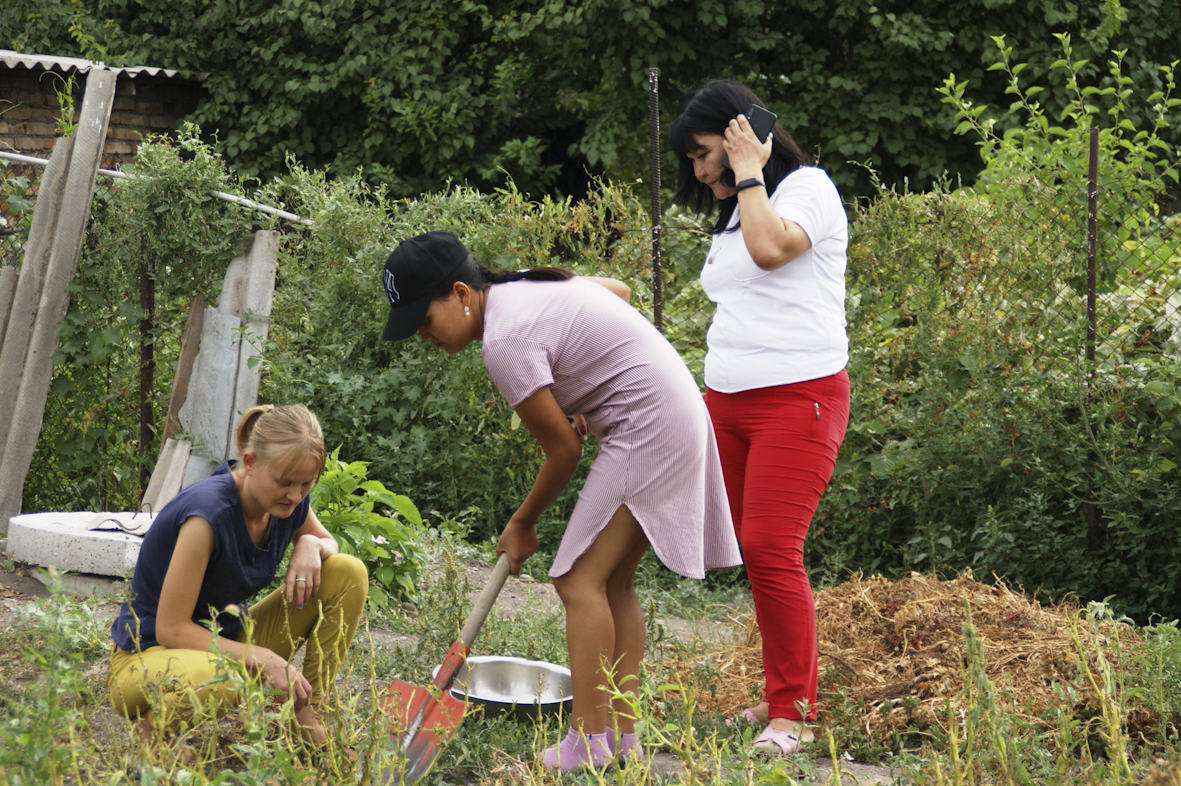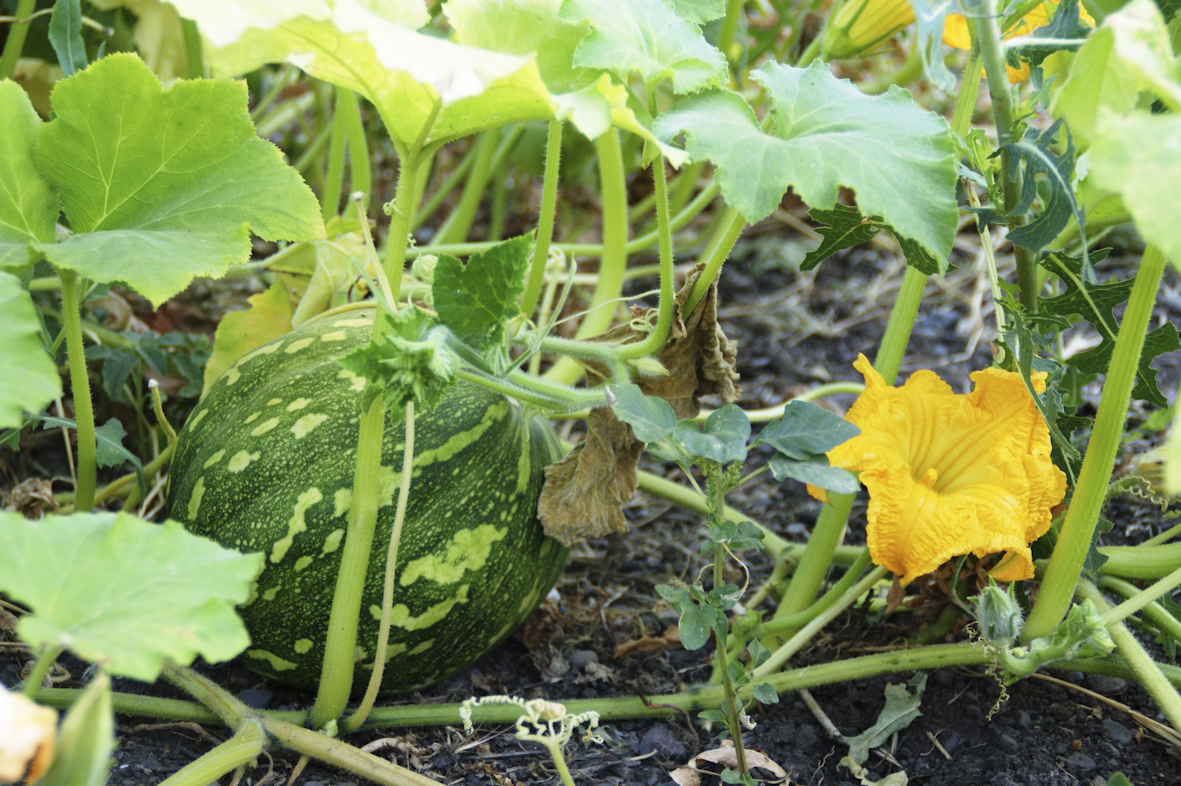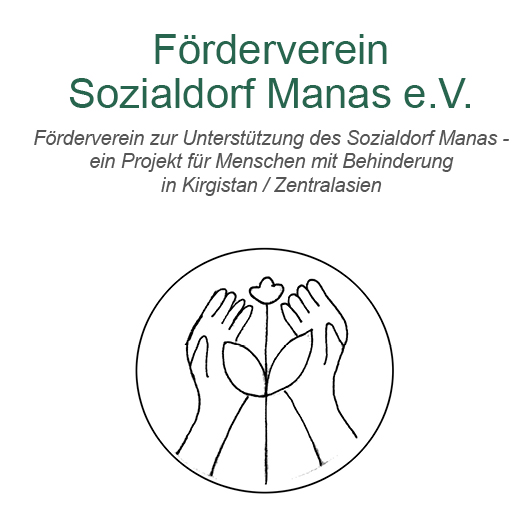
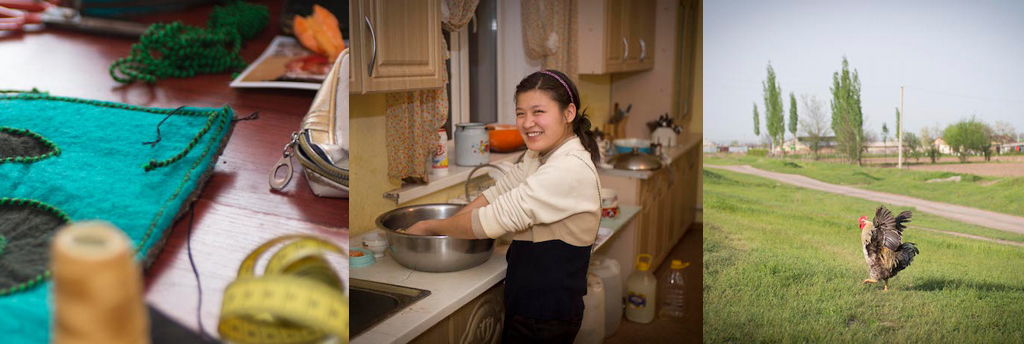

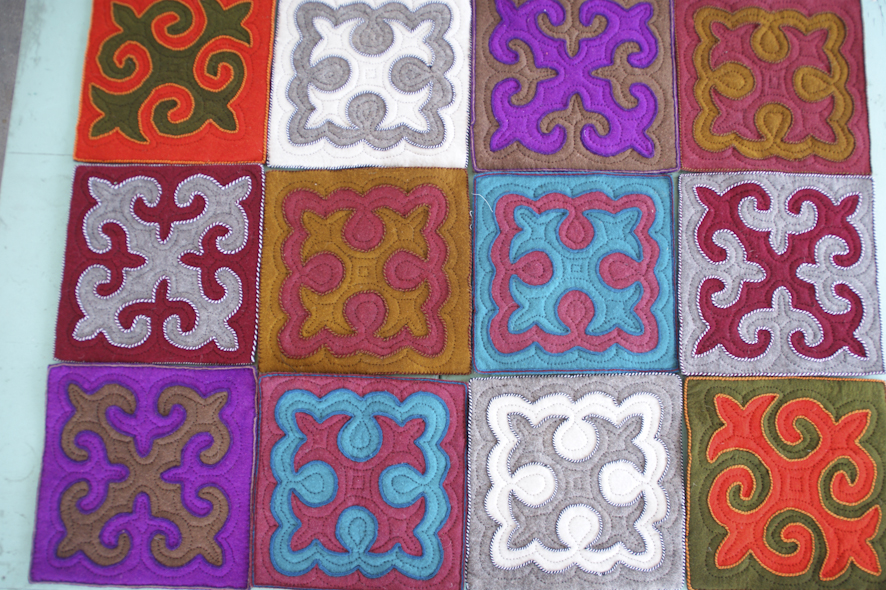
The felt workshop is a very important work area. Many of the residents work here. The production of felt products in Kyrgyzstan has a tradition of many centuries. The yurts with which the Kyrgyz and their animals are going into the mountains in the summer are made of felt by nomadic women. Also large rugs, the kyrgyz Shyrdaks, are made by hand from felt.
Sheep wool felt is used in the Social Village Manas to produce cushions. They carry the traditional symbols and colors and each piece is unique. The natural products are comfortably warm and soft.
The products from the felt workshop of the Social Village Manas are brought to Germany and we sell them at various Christmas bazaars. The proceeds go directly back to the Social Village Manas and contributes there to the running costs. Thus, the inhabitants can make their own contribution to the survival of the Social Village Manas.
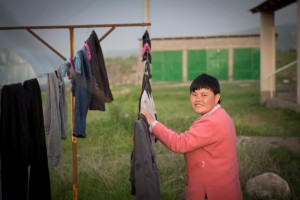
Some residents take important tasks in the housekeeping and, together with the employees, ensure that people cook, wash, clean, buy, and also help those who need support or need to be looked after while eating. They also help with shopping.
Housekeeping is for some people who do not like to be in the felt workshop, because it is always turbulent and loud, a very suitable work area to gain knowledge and skills and to gain self-confidence. Those who work here are urgently needed.
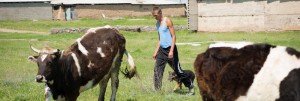
In agriculture, there were previously dairy cows. They are milked in the morning and in the evening, and during the day a shepherd goes with them to the river to water them and over the meadows to feed them. Sometimes the cows also eat the grass around the houses. Then the shepherds have to be careful not to eat the young trees.
Since the autumn of 2015, there is a nice new chicken coop with spout, in which 50 to 100 chickens have space. They must be fed and the barn must be cleared out and it must be seen that the energizer works for the spout and all the animals are there. Also, the barn must be closed in the evening, when it gets dark, and opened in the morning.
For the cows and their offspring also a new stable was built. Also for a flock of sheep of up to 30 animals, a compartment was set up in the new barn. The money to buy the flock of sheep was donated in November 2015 by donors of the Munich initiative Zwecklöffeln. Thanks a lot for this.
The milk from the cows is processed into dairy products such as cream, butter, curd, cream cheese in the external residential group.
With the financial support of Abilis, a Finnish organization, in 2015 a greenhouse was built. Salads and other vegetables are to grown here and enrich the menu. However, due to the lack of water in Murake, this is moved to the external residential group. There, water is always available, which facilitates the cultivation of fruit and vegetables.
In agriculture, demanding jobs have been created for residents of the Social Village Manas, all of them with disabilities. Agriculture will increasingly contribute to the institution’s self-sufficiency.

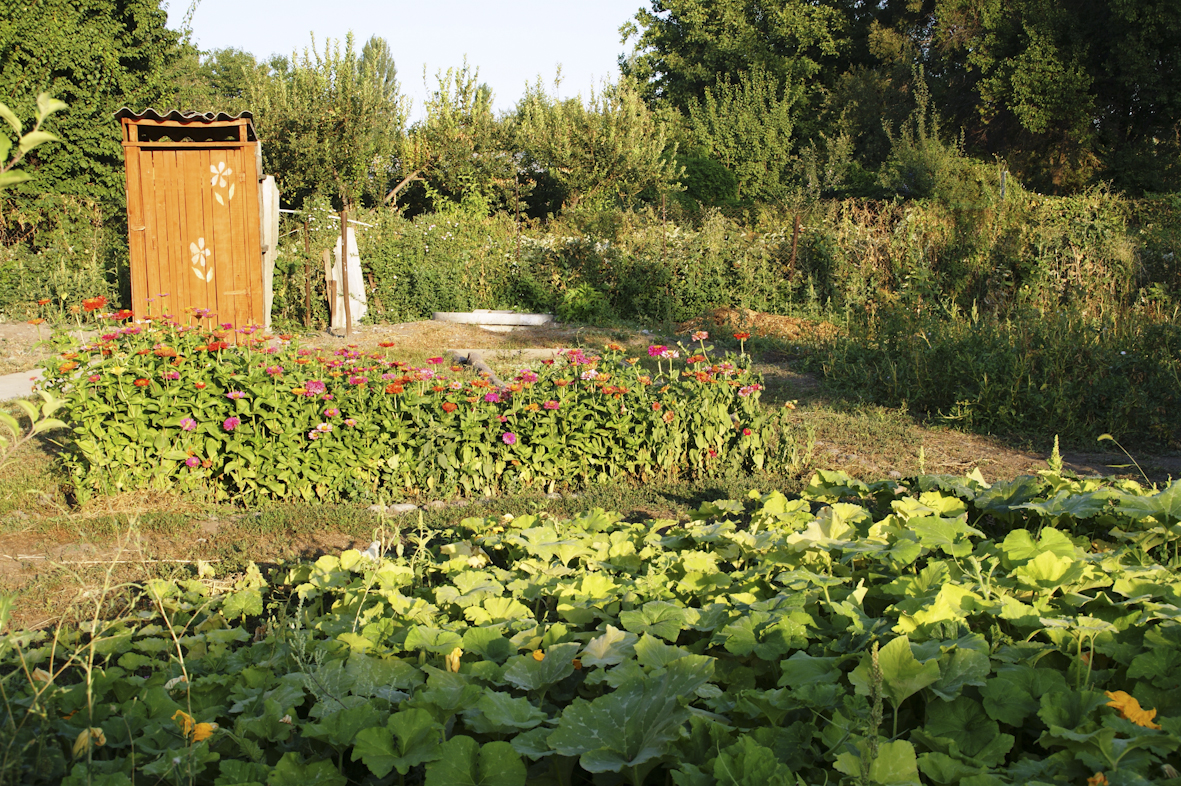
Especially in the external residential group, gardening is an important area of work for the residents; the harvest contributes to self-sufficiency. The residents take care of the garden very conscientiously, planting flowers as well as vegetables.
The external residential group is more suitable for growing one’s own fruit and vegetables; in the Social Village itself, there is often too little water available. That is why the foil tunnel was moved there.
The harvested vegetables are used for cooking – cucumbers and tomatoes are also popular for salads.
In Murake, many flowerbeds have been planted, especially in the entrance area and in front of the houses. Here, too, the residents are very happy to help and enjoy the beautiful results.
From 2016 to 2017, Sebastian, an agricultural engineer from Germany, was in the Social Village Manas and planted the garden areas belonging to the village and the external residential group with all imaginable types and varieties of vegetables for self-sufficiency.
